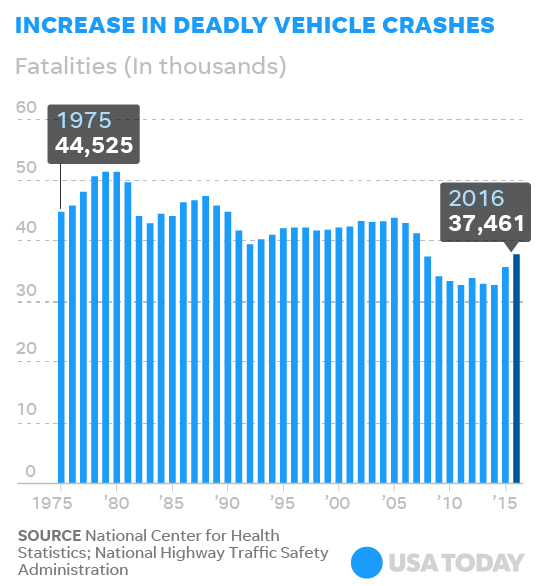"
if ya make a claim like this, ya really should link source material to support it
I already did. From a previous post, quoting the Harvard School of Public Health report:
===============
Second, many suicidal crises are self-limiting. Such crises are often caused by an immediate stressor, such as the breakup of a romantic relationship, the loss of a job, or a run-in with police. As the acute phase of the crisis passes, so does the urge to attempt suicide. The temporary nature and fleeting sway of many suicidal crises is evident in the fact that more than 90% of people who survive a suicide attempt, including attempts that were expected to be lethal (such as shooting oneself in the head or jumping in front of a train), do not go on to die by suicide.
===============
Again, this can be mitigated better with better health care and mental health provided
And I am all for that.
But keeping a gun away from a suicidal person is a _very_ effective method of preventing (successful) suicides. Mental health treatment will certainly help but will not be as effective - because quite often the person presents as 100% normal until the event occurs that makes them suicidal (finding out about a spouse's infidelity, getting arrested, finding out about a grave illness, death of a loved one etc)
there is no reason to remove everyone's rights when we would be better off as a species addressing the core problem
I agree, and again, I am not proposing "removing everyone's rights."
the gun really is the great equalizer
I'll use an example from skydiving to get away from all the emotion surrounding guns.
30 years ago, the #1 reason for fatalities in skydiving was no-pulls (i.e. jumper did not open a parachute in time.) A company called Airtec developed the first good AAD (automatic activation device) that sensed altitude and speed, and opened the reserve parachute if the jumper got below 700 feet going faster than about 80mph. Once they were widely adopted, they significantly decreased no-pull deaths.
People approached these devices in different ways.
Old-school skydivers didn't much change what they did. They got an AAD and didn't change how they planned dives, what altitude they pulled at etc. They saw a decrease in fatalities.
Most skydivers changed their procedures a little to accommodate the AAD, but didn't take _significantly_ more risks. Their fatality rate stayed about the same.
Some skydivers used the AAD as a way to allow them to do riskier things. As an example, someone would plan a "zoo dive" - a classic formation jump made with low experienced jumpers with minimal preparation. These are traditionally dangerous. When a more experienced jumper would warn them of the risks of such a dive, they'd say "hey, that's why I have an AAD!" This group actually saw their fatality rates go _up_ - because AAD's are great, but they won't protect you from a broken neck when you collide with someone at 7omph.
So overall AAD's have not changed the fatality rate in skydiving very much. Per-capita it's about the same as it was in 1990. As the equipment has gotten safer it's saved a lot of people, but the people who see it as something that will save them from dangerous situations have seen more deaths.
I see guns in the same way. If that 80 year old woman thinks "hey, now I can go to that store that gets robbed all the time because I have a gun! It's the great equalizer; I am now the equal of those thugs!" then having that gun may just get her killed - even if it can protect her in some situations.
I've repeatedly said this in the past: the core problem isn't about the gun, it's about the violence
Of course. But the gun greatly changes the outcome. Compare a mass murderer who goes to a school with a knife or a bat vs. an AR-15.
we shouldn't be wasting money fighting a war against an inanimate object because this war is the main reason we have laws that aren't enforced... making more laws also confuses the issue and can lead to worsening problems with criminals lawyers using those confusions to create (or use) loopholes
the fight should concentrate on funding enforcement of laws as well as functional corrections to the violence problem
This is best demonstrated by cars in our society
OK, cars are a good example. So let's treat guns like cars. As others have pointed out, fatality rates are similar.
Let's license all gun owners so we don't have incompetent gun owners leaving loaded guns out for their toddlers, or shooting at targets when they don't clear downrange, or shooting themselves when they mishandle guns.
Let's require registration so we can make sure that guns meet basic safety requirements, just as cars are required to do. This also allows recalls when guns are found to be dangerously defective.
Let's require insurance to mitigate the damage they do when misused. Just as with car insurance, the insurance will be made available to compensate victims of gun misuse. Responsible gun owners will, of course, pay far less than irresponsible owners - which will result in an excellent incentive to be responsible.
I
disagree: there is no evidence
Australia is pretty good evidence. Not a single mass shooting since stricter gun laws, and a gun buyback program, went into place.
we can't use other nations because there is not comprehensive studies to demonstrate that the only factor in any reduction is due to gun control
So we can't use evidence of places where it has worked?
I agree that if all evidence is rejected there is no evidence, but that's hardly a reasonable approach to a problem.
other nations also adopted other laws and other methods in conjunction with their gun control agenda
Yes, like gun buybacks. No one thing will be a 100% solution.

